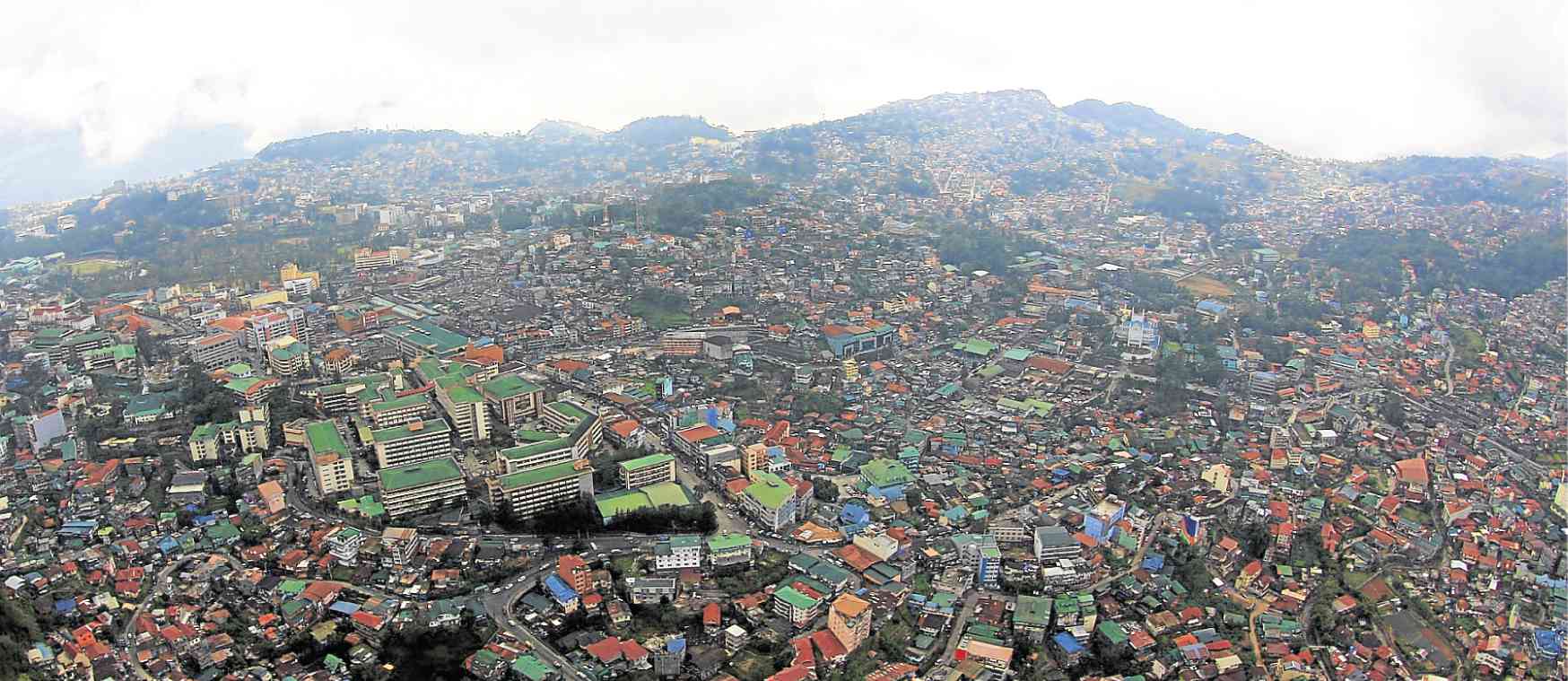
CROWDED Baguio has become a multicultural city in the Cordillera, but over development and population growth now plague the country’s summer capital. —EV ESPIRITU
MANILA, Philippines — “Let us save Baguio City while we still can.”
This was the call of the Department of the Interior and Local Government (DILG) Secretary Eduardo M. Año on Monday as he backed the proposal seeking to set at least a one-year moratorium on the construction of high-rise buildings in Baguio City.
READ: Baguio eyes ban on new buildings, tree cutting
Año said the city is already “heavily congested,” adding that the city’s environmental condition is now a priority concern.
“I strongly agree with Mayor Benjie Magalong on the moratorium in the construction of high-rise buildings in Baguio City. The city is now heavily congested and it’s taking so much toll on the environment. The city’s environmental condition is now a priority concern of the interagency task force headed by Environment Secretary Roy Cimatu,” Año said in a statement.
The proposal comes as a form of an Executive Order, a draft of which has been sent to the Office of the President, Año said.
Under the draft Executive Order on the moratorium, a one-year temporary prohibition would be put on the construction of construction of high-rise buildings, as well as cutting of trees in the city, unless dead or posing danger to the public.
Further, the proposal also comes with a funding component to implement priority rehabilitative projects such as the upgrading and expansion of the city’s sewerage treatment system.
“The city needs to pause, breathe, and be healed because of overdevelopment. Let us save Baguio City while we still can. The proposed EO will pave the way for a reevaluation of the city’s urban development planning in order to consider the impact to the environment,” the interior secretary added.
Interior Undersecretary and Spokesperson Jonathan E. Malaya, meanwhile, said that DILG, through their Cordillera Administrative Region (CAR) office, will work with the city government of Baguio as well as the DENR-CAR in addressing other issues in the city including dwindling water supply, solid waste management, tree cutting, and overdevelopment, among others.
Informal settler families are reportedly occupying about 40 percent of the Busol Forest Reservation, the city’s biggest source of potable water.
This resulted in the depletion from six watersheds to four.
“Our target is to ensure that Baguio City’s beauty is well-preserved so that every time local and foreign tourists go there to unwind and recharge, they can all take refuge in the city’s clear blue skies, lush green mountains, towering pine trees, and very hospitable climate,” Malaya said. /je
READ: Roles of DENR, DPWH in Baguio decay up for scrutiny

